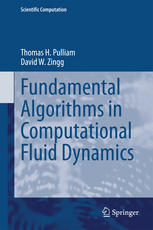

Most ebook files are in PDF format, so you can easily read them using various software such as Foxit Reader or directly on the Google Chrome browser.
Some ebook files are released by publishers in other formats such as .awz, .mobi, .epub, .fb2, etc. You may need to install specific software to read these formats on mobile/PC, such as Calibre.
Please read the tutorial at this link: https://ebookbell.com/faq
We offer FREE conversion to the popular formats you request; however, this may take some time. Therefore, right after payment, please email us, and we will try to provide the service as quickly as possible.
For some exceptional file formats or broken links (if any), please refrain from opening any disputes. Instead, email us first, and we will try to assist within a maximum of 6 hours.
EbookBell Team

4.4
72 reviewsIntended as a textbook for courses in computational fluid dynamics at the senior undergraduate or graduate level, this book is a follow-up to the book Fundamentals of Computational Fluid Dynamics by the same authors, which was published in the series Scientific Computation in 2001. Whereas the earlier book concentrated on the analysis of numerical methods applied to model equations, this new book concentrates on algorithms for the numerical solution of the Euler and Navier-Stokes equations. It focuses on some classical algorithms as well as the underlying ideas based on the latest methods. A key feature of the book is the inclusion of programming exercises at the end of each chapter based on the numerical solution of the quasi-one-dimensional Euler equations and the shock-tube problem. These exercises can be included in the context of a typical course and sample solutions are provided in each chapter, so readers can confirm that they have coded the algorithms correctly.